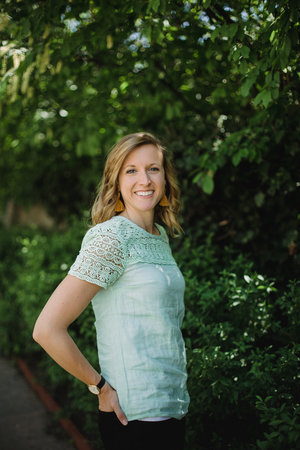Is Valentine's Day For You?
You may be someone who goes all out of Valentine’s Day for your partner by making them feel special in whatever way you can. For others Valentine’s Day may bring up feelings of sadness, anger, or loneliness. Valentine’s Day may be another reminder of unmet needs and let down expectations of their hopes and future as a couple. This feeling can be really difficult to face and most days it may be easier to put on a good face and push down your longings and desires for intimacy, closeness, and living out your dreams with you partner. Acknowledging these distant gaps can leave you feeling discouraged, guilty, or even shame.
Brene Brown’s definition of shame was developed by her decade of research on shame and connection. She defines shame as “the intensely painful feeling or experience of believing that we are flawed and therefore unworthy of love and belonging” (Brown, 2012, p. 69). This feeling of shame can take many different forms to help protect us from our own vulnerability -- perfectionism, addiction, anger and criticalness. When we ignore or suppress our need for connection, we are literally suppressing a primal human need.
Since the early 1900s, John Bowlby and Mary Ainsworth’s research revealed from their studies of infants at orphanages and hospital institutions that attachment is a necessity for infants’ survival (Bretherton, 1992). There has been a recent breakthrough in attachment research that has revealed that belonging and connection are just as primal of needs for adults as they are for babies. This survival need is met for adults in long-term significant relationships that create a sense of safety, meaning, and intimate connection. This might be with a close long-term friend or family member, or with your partner or significant other. If you feel that you and your partner have lost that sense of safety and connection in your relationship, that does not have to mean that it is over. Many couples get caught in what Sue Johnson, the developer of Emotionally Focused Couples Therapy, calls a negative cycle. She describes a couples negative cycle as a dance that has changed from music that was once beautiful and effortless to something painful and difficult.
A common dance couples get into is when one partner will get very angry and upset when they feel their needs are not being met and the other one shrinks away and disengages either emotionally or physically. Often anger or withdrawal are what each partner in the relationship experiences, however, there is a deeper level of interaction happening where both are really seeking to connect. Oftentimes, these surface reactions of anger and withdrawal were learned in childhood or in another significant relationship that wounded them as a mechanism to help them survive when they feel their primal need of love and belonging being threatened.
If you and your partner feel like you are stuck in a negative dance with one another, know that what each of you may be experiencing is probably not the full story. Underneath every negative reaction to conflict, there is the need that each of you have to connect and belong. Dr. Sue Johnson has designed a method of couples therapy called Emotionally Focused Couples Therapy to help couples begin to realize their negative cycle. She also has written the book “Hold Me Tight” to help couples begin to unpack the layers of their relationship to help them make disconnection the enemy and not one another and find their way back to connection and intimacy. If you would like help with your relationship, please feel free to reach out to one of our therapists. Amy McCann is one of our couples therapists and she is certified in Emotionally Focused Couples Therapy. Please feel free to reach out today for a free intake today and know that there is hope to find a way back to love and belonging.
Sources
Brown, B. (2012). Daring greatly: How the courage to be vulnerable transforms the way we live, love, parent, and lead. New York, NY: Penguin Random House.
Bretherton, I. (1992). The origins of attachment theory: John Bowlby and Mary Ainsworth.
American Psychological Association, 28, 5, 759-775.
About the Author:
Amy McCann, RP, Apprentice, is earning her Master of Arts in Clinical Mental Health Counseling at Denver Seminary. She is open to seeing many types of clients of all age ranges. She is trained in Emotionally Focused Couples Therapy and desires to help couples strengthen their relationship. Amy earned her Bachelor of Science in Exercise and Movement Science from the University of Vermont, and desires to help her clients in a holistic way. She is passionate about people finding true freedom and healing in every area of life. Amy also has rich cultural experiences with living overseas and enjoys cross-cultural work with clients. Amy is originally from Boston, but loves living in Colorado with her husband. They enjoy hiking, fly fishing, playing games with friends, and eating ice cream.

